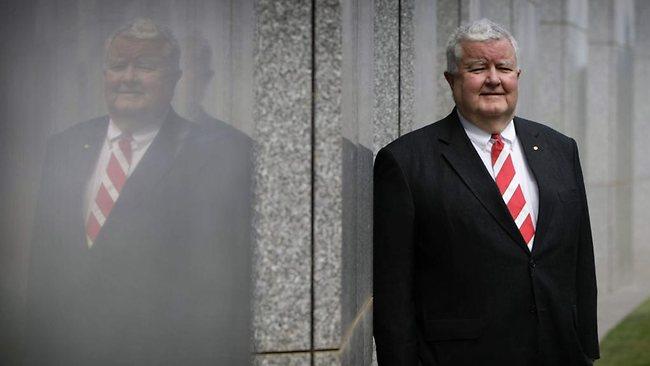Call by chief scientist Ian Chubb to end university 'popularity contest'
CHIEF scientist Ian Chubb will call for a radical rethink of university funding so that sciences do not fall victim to a "popularity contest".

CHIEF scientist Ian Chubb will call for a radical rethink of university funding so that maths and other disciplines vital for Australia's future do not fall victim to the "popularity contest" of choices made by teenage students.
In a speech in Adelaide today, Professor Chubb takes aim at a funding system in which the disciplines popular with undergraduates prosper and take on more academic staff who not only teach but carry out research.
"This means that as a whole, more, probably much more, than 50 per cent of all government spending on research is seriously influenced by the choices of our 17- and 18-year-olds," he says in a preview of the Health of Australian Science report he will launch next week at the National Press Club.
The former vice-chancellor of the Australian National University will advise Julia Gillard how to combat Australia's weakness in maths, science and technology education.
He says a "popularity contest" is not the way to direct research at the challenges facing Australia and points to steep declines in the number of students taking agriculture, engineering, maths, chemistry and physics.
He cites the "frightening statistic" that, of Australian high school students not taking science, only 1 per cent agreed in a survey that science would be "almost always" relevant to their future. He says there are as few as 60 Australians doing their doctorates in statistics, a field that Google's chief economist Hal Varian famously anointed the next "sexy job" because of the rise of data analytics.
In Australia, the proportion of Year 12 students taking physics fell 32 per cent between 1992 and 2009. The decline for biology was the same, while chemistry was down 25 per cent.
Professor Chubb says he has put together a "brains trust" to come up with new ways to stimulate interest in these strategic disciplines, but called for action now so universities preserve their teaching and research capacity for the day when students numbers return.
"You need to increase the demand, you need to make these subjects so compellingly interesting that student want to do them, because you can't dictate what they do," he told The Australian last night.
Professor Chubb gave the example of agriculture, where Australia produced just 743 graduates in 2010, a year in which 4500 agricultural science jobs were advertised.
"Can you imagine Australia without strong agricultural science?" he said. "The question needs to be asked: is it important enough to intervene to provide funding to maintain agricultural science and then work hard to make it something students want to do all over again?"
This year the government introduced a demand-driven reform to university funding, which means the size and mix of disciplines in an expanded sector is supposed to respond more readily to the course choices of school-leavers.
Labor has promised to fund as many places as universities can enrol, so 40 per cent of young Australians have at least a bachelor degree by 2025.
Some commentators predict that less popular subjects, including languages, may go into rapid decline.
Professor Chubb said the effect of the demand-driven system "needs to be watched carefully" in case it exacerbates the problems experienced by strategic disciplines.
If the reform simply added new money to the university system, and enrolments in the strategic maths and science disciplines kept pace with other subject areas, the new regime would be no worse than the existing one, he said.
But there would be "a major issue" if the money were redistributed, and enrolment growth in business, for example, outpaced the growth in science and other vital disciplines.
"Those disciplines need to be watched. They're important to our future and I don't think you can assume any issues will correct themselves if we don't try to influence them," he said.
"How we do it is the critical issue for us to discuss."
In today's speech, he says Australia must prepare for an unpredictable future. "We need to have the levers in place to be able to respond to new challenges as they appear and give funding to the places it is most needed, not where bachelor degrees are most popular."
Professor Chubb says the public investment in research fails to acknowledge that "some areas of research simply are more important than others right now".
He chairs the new Australian Research Committee, which has been asked by the government to draw up plans for strategic investment in research with an eye to likely problems and opportunities for the nation.
"We need to ensure Australia is prepared for a future where entirely new industries will be born," he says.
"A future where we will not always be able to rely on our natural resources for our prosperity.
"A future where the climate will affect us in ways we still find hard to predict, and a future where we will need local expertise in a range of research areas that may be different from those needed now."


